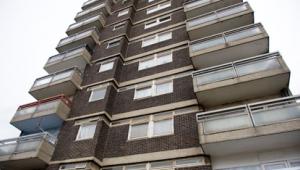Every year the calls to get rid of the Housing Revenue Account – the national system controlling local council housing income – get louder.
I’ve given those calls an emphatic answer with plans to dismantle the national HRA subsidy system and replace it with a new local self-financing model. This new model would give each council greater freedom to tackle the housing needs in their area without recourse to central government, to plan effectively over a 30-year period without the need for an annual settlement.
This is a radical reform of the current system. Councils say they want it, and now the ball is in local government’s court. Our consultation on these reforms closes on October 27 so there is still time to respond and I want to hear from those councils that genuinely want to see a change. They must speak up now – not just as a group, but as individual councils clear about their commitment to change.
The review of council housing finance that began in February 2008 ended this summer. It looked at the whole area of housing finance, taking in the experience and views of councils, tenants and other experts. The evidence confirmed our initial view that, although the principles underpinning the current system are good – that all landlords should be able to provide good quality homes for their tenants at a fair rent – the system set up to achieve this is restricting the local flexibility needed for improvement.
I have been clear about my intention – I want to dismantle the HRA subsidy system and give power back to the local level. But there are complex issues that we need to unpick.
First, the new system must continue to ensure that all councils can provide a good service at a fair rent. That is why I propose to set a new baseline for each council, based on their investment needs and the income they should get if they set rents in line with national social rent policy.
And secondly, there is the matter of debt. I fully understand that the one-off reallocation of housing debt I am proposing will be a challenge for many councils. But I believe the prize is worth it. I am also clear that this is the only fair and affordable option. It is right that money from rents should contribute to the costs of the debt incurred in building and maintaining those homes. The alternative would be for the national taxpayer to foot the interest bill of more than £1bn a year. This can’t be right, particularly given the extra funding we’re providing to build more homes.
I also propose to end the central pooling of housing capital receipts, allowing councils to reinvest them in their existing stock and in building new homes. Recent changes means this already applies to all newly built council homes.
I will continue to work with local government and with experts in professional bodies such as CIPFA, on arrangements and different aspects of self-financing. Subject to our consultation and the willingness of local government, I want to be in a position to put a detailed offer on self-financing to councils in the early part of next year.
I am very encouraged by the general reaction to my plans, and the important immediate step is to hear the views of individual councils on the consultation.
I am ready to press on quickly with the next critical stages of these reforms, but I can only do so if we work together. Your responses to the detailed consultation questions will make a difference. There is the opportunity now to ditch the HRA and to put in place a new long-term system. We can either seize this chance or spend the next few years reflecting on what otherwise will be a missed opportunity.
John Healey is housing minister. Find the consultation paper, Reforming council housing finance, at the DCLG website. The questions are set out throughout the text and summarised in Annex A. Send your views to [email protected] on or before October 27










